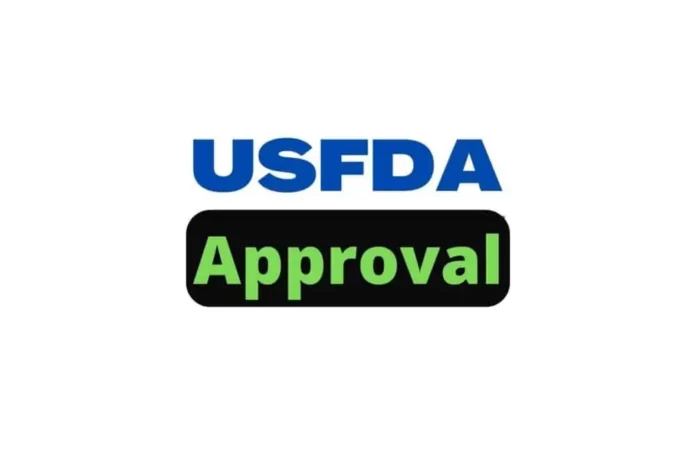Last Updated on December 31, 2023 by The Health Master
Drug to prevent RSV in babies and toddlers
The U.S. Food and Drug Administration (USFDA) has given its seal of approval to Beyfortus (nirsevimab-alip), a groundbreaking drug jointly developed by Sanofi and AstraZeneca.
This approval represents a significant step forward in the prevention of Respiratory Syncytial Virus (RSV) lower respiratory tract disease in neonates, infants born during or entering their first RSV season, and children up to 24 months of age who remain at risk for severe RSV disease through their second RSV season.
USFDA Approval for RSV Prevention in Infants and Children
Approval for At-Risk Groups:
The USFDA approval specifically targets neonates, infants, and young children up to 24 months of age, who face the greatest vulnerability to severe RSV disease during their early years.
By providing this population with preventive measures, the USFDA aims to reduce the number of emergency department and physician office visits resulting from RSV infections.
Development by Sanofi and AstraZeneca:
Beyfortus is the result of a collaborative effort between pharmaceutical giants, Sanofi, and AstraZeneca.
The drug was developed under an agreement announced in March 2017 to jointly develop and commercialize this revolutionary treatment.
Addressing the Impact of RSV Disease on Children and Families
Statement by USFDA Official:
Dr. John Farley, the Director of the Office of Infectious Diseases in the USFDA’s Center for Drug Evaluation and Research, highlighted the seriousness of RSV disease, particularly in infants and children.
He emphasized that the approval of Beyfortus addresses a pressing need for products that can help mitigate the impact of RSV on children, families, and the healthcare system as a whole.
RSV and Its Impact:
RSV is a virus that causes acute respiratory infections across all age groups. While most infants and young children experience mild, cold-like symptoms, some infants, especially during their first infection, may develop more severe lower respiratory tract diseases like pneumonia and bronchiolitis.
These conditions often lead to visits to emergency departments or physicians’ offices. Premature infants and children with chronic lung disease or significant congenital heart disease face the highest risk of severe RSV disease.
Each year, approximately 1% to 3% of children under 12 months old in the United States are hospitalized due to RSV infections, as reported by the American Academy of Pediatrics.
RSV Circulation and Transmission:
RSV circulates seasonally in most parts of the U.S., typically starting in the fall and peaking during the winter. It spreads from person to person through close contact with infected individuals.
The Mechanism of Beyfortus and Clinical Trials
Monoclonal Antibody Approach:
Beyfortus is a monoclonal antibody designed to combat RSV. Monoclonal antibodies are synthetic proteins that mimic the body’s natural immune system to fight harmful pathogens like viruses.
Administered as a single intramuscular injection before or during RSV season, Beyfortus is intended to provide protection throughout the RSV season.
Efficacy and Safety:
The USFDA based its approval of Beyfortus on three clinical trials, named Trials 03, 04, and 05.
The primary measure of efficacy was the incidence of medically attended RSV lower respiratory tract infection (MA RSV LRTI) within 150 days after receiving Beyfortus.
This included all visits to healthcare providers, such as physicians’ offices, urgent care centers, emergency rooms, and hospitals, for lower respiratory tract diseases with worsening clinical severity and a positive RSV test.
Trials 03 and 04 were randomized, double-blind, placebo-controlled, multicenter clinical trials, validating Beyfortus’ safety and effectiveness.
Possible Side Effects and Warnings:
While Beyfortus offers significant benefits, it is essential to be aware of possible side effects. These may include rash and injection site reactions.
Furthermore, Beyfortus should not be administered to infants and children with a history of serious hypersensitivity reactions to Beyfortus’ active ingredients or any of its excipients.
Additional precautions accompany the use of Beyfortus, including warnings about serious hypersensitivity reactions, such as anaphylaxis, which have been observed with other human IgG1 monoclonal antibodies.
Beyfortus should be given with caution to infants and children with clinically significant bleeding disorders.
Fast Track Designation:
Beyfortus received a Fast Track designation from the USFDA for its indication, signifying its potential to address a critical medical need. The USFDA has granted this approval to AstraZeneca.
Conclusion:
The USFDA’s approval of Beyfortus (nirsevimab-alip) marks a significant advancement in preventing Respiratory Syncytial Virus (RSV) lower respiratory tract disease in vulnerable neonates, infants, and young children.
By harnessing the power of monoclonal antibodies, this innovative treatment offers promising protection during RSV season and aims to alleviate the burden of RSV-related illnesses on children, families, and the healthcare system.
USFDA gives approval for Chlorpromazine HCL tablets
USFDA gives approval for OTC Acetaminophen and Ibuprofen Tablets
USFDA gives tentative nod for Dolutegravir tablets for oral suspension
USFDA approves 1st OTC Daily Oral Contraceptive
USFDA gives nod for Sevelamer HCL tablets
USFDA gives nod to this Nasal spray for Vitamin B12 deficiency
Drug alert: DCGI issues drug alert on usage of cough and cold medicine
Govt Job: for the post of Director at CDTL – Central Drugs Testing Laboratory
USFDA gives approval for Chlorpromazine HCL tablets
The importance of NABL Accreditation in international Pharma Trade for MSMEs
Pharma Industry urges Govt to authorize Private labs to test cough syrups
USFDA indicates voluntary action for Aurobindo Pharma:: AP
The Impact of Online Pharmacies on the Conventional Drug Distribution System
Drug Alert Process: Factors to Consider for Drug Regulator
For informative videos by The Health Master, click on the below YouTube icon:
For informative videos on Medical Store / Pharmacy, click on the below YouTube icon:
For informative videos on the news regarding Pharma / Medical Devices / Cosmetics / Homoeopathy etc., click on the below YouTube icon:
For informative videos on consumer awareness, click on the below YouTube icon:









